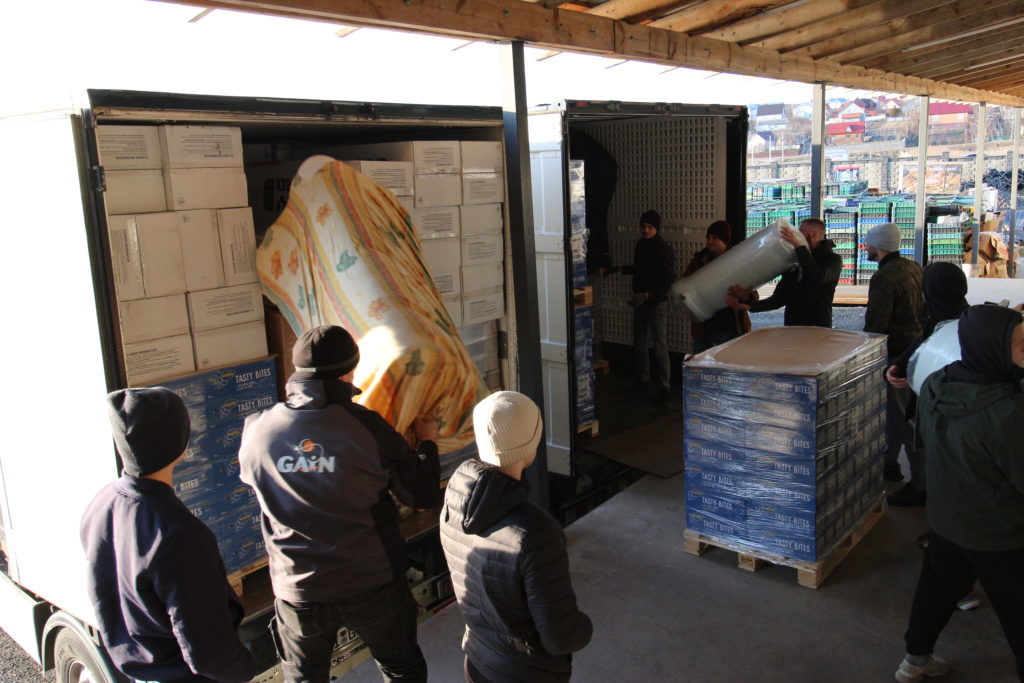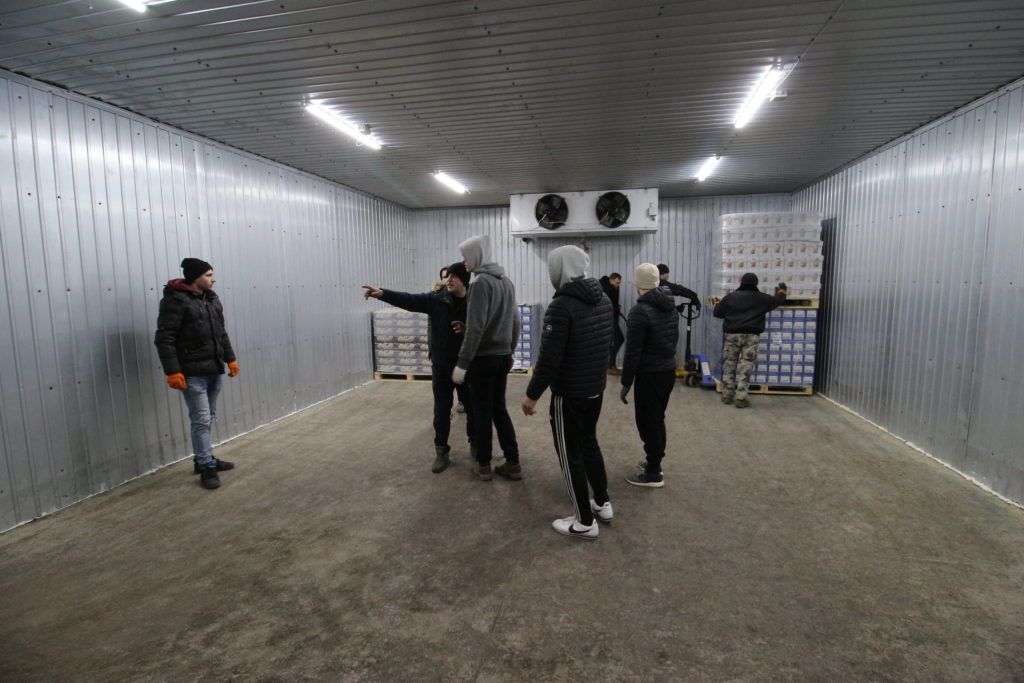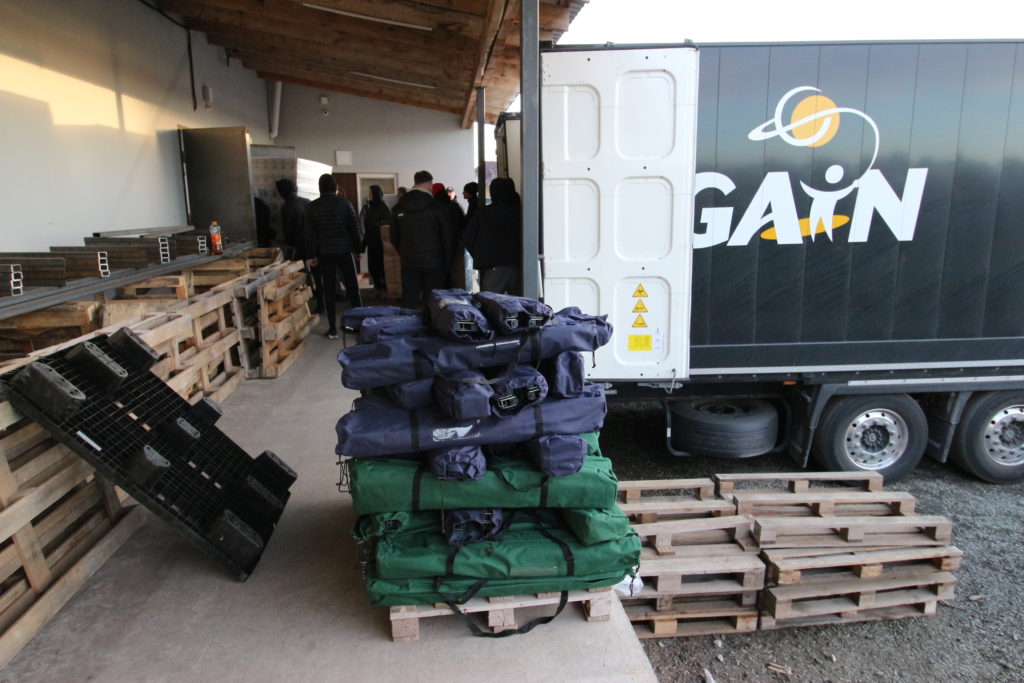Story by Pau A. (March 11, 2022)

We arrived later than expected, but we are finally here. The entry to the warehouse is a tricky one, but our experienced GAiN drivers could manage it even with their eyes closed. In front of us, there is a group of about 20 to 30 people, most of them young men, volunteers from our local partner within Ukraine. Tomorrow, a fleet of cars and vans will come here from different parts of the country to bring GAiN’s aid to the hardest-hit areas of war.
These are the real heroes of war. People arriving from war-torn cities and towns under the eye of fire and shellings, just to go back and deliver basic supplies to their neighbours. We cannot feel any other way than privileged to be a small part of what they are doing by helping and enabling them to alleviate so much suffering taking place right now and here.
“Right after the war began, four or five days later, these were the first guys who took the minibuses, the food from their salaries, simple food, all they could, and they were the first ones, they did not wait for anybody,” says Sasha, our local partners’ main contact. He is surrounded by other two Sashas (formally Alexander). All three of them are the main people responsible for coordinating the efforts being done to deliver aid to the different regions and to accommodate families moving to the border.

Sasha comes from Vishgorod, north of Kyiv. Today, his church and many other villagers from Vishgorod were able to evacuate. “Kyiv is still working good because there is still an open side where they can bring in the food,” he explains. “Those cities that are surrounded are in a more difficult situation.”
Sasha is happy that we could enter the country and meet them personally: “Western Ukraine became the hub for receiving the aid and send it. Here it is safe, this road is safe. I wouldn’t send you anywhere further, but here is safe.”
Sasha is driving more around the country, but who is really taking care of the warehouse we are now is the other Sasha by his side. “In the evening this is full,” he says. “But tomorrow there will be nothing here. Many buses, light trucks and even bigger ones, we are loading them here and sending them to Kyiv, Kharkiv, Poltava…”
Their network of churches is present in the 24 provinces in Ukraine. “As soon as we get something,” he continues, “we arrange the transportation and take it to the person who is responsible for the area.” The first Sasha takes over this point of the conversation: “Here in the phone there is a group with 25 church leaders and tonight,” he points to the second Sasha, “This man will see the specifications and will say to the 24 leaders: guys, we have this and that… So, already tonight or in the morning these guys will know what you have brought here.”

He keeps on going: “A lot of people now they evacuated from their homes, they have no basic things… So, I want to say thank you for giving the people the very basic, supporting them at the neediest moments in their lives.”
Finally, we ask the other Sasha, as the main leader of the network of churches that we partner with, how the Ukrainian Church is enduring this time of suffering. Sasha’s response cannot be any more hopeful: “I made a statement today that the war removes religion and brings faith. This region was one of the biggest church-wise, and some of us were concerned that we were living a lot of times locked in our own worlds, but now our walls have fallen. Our young people are just going around serving people, and that’s incredible.”

Leave a Reply